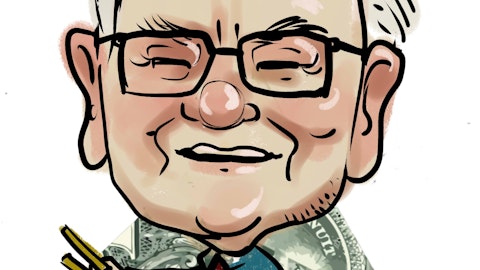Hurricane Sandy is undoubtedly on everyone’s minds, including property and casualty insurance companies. As the massive storm ripped across the East Coast it left a trail of destruction, from homes to commercial buildings. This is very bad news for the owners and families, but also bad news for insurance companies that will see a flood of claims.
The Chubb Corp (NYSE:CB) is one of the U.S.’s largest property and casualty insurers, and managed to beat 3Q earnings last week handily, with 90% growth year over year. Ironically, this EPS pop was driven by unusually low catastrophe losses. However, in a report by Credit Suisse, of all the property and casualty insurers, it appears that Chubb has the most to lose from the Hurricane Sandy damage. Credit Suisse estimates that over 100% of the company’s 4Q earnings could be wiped out by claims.
Up to this point, Chubb was performing well and had guided full year EPS estimates up from $5.70-$5.95 to $6.70-$6.80. However, the company has significant exposure to the homeowner insurance sector, having derived over 70% of premiums written from the U.S. and over 34% from personal lines – auto and homeowners. Based on the tentative Hurricane Sandy damage estimates and Chubb’s exposure, there will be big money lost by key funds. The two funds looking to be out the most are Diamond Hill Capital and Key Griffin, owning 1.7 million shares and 730,000 shares respectively; see all funds owning Chubb.
Other key insurers that are likely to lose money as a result of Hurricane Sandy include The Allstate Corporation (NYSE:ALL), ACE Limited (NYSE:ACE), Hartford Financial Services Group Inc (NYSE:HIG) and The Progressive Corporation (NYSE:PGR).
Allstate and Hartford are estimated by Credit Suisse to have over 80% of their 4Q earnings in danger of being wiped out. Allstate is the second largest property and casualty insurer in the U.S. The company has already seen its profitability in 2012 shrink due to a larger than expected number of catastrophe claims in 2011. Loses due to catastrophe claims were $3.82 billion in 2011, versus $2.21 billion in 2010. Without accounting for Hurricane Sandy, Allstate was expected to grow operating EPS from $1.32 in 2011 to $4.09 in 2012.
Hartford, another company with large exposure to the potential Hurricane Sandy damage, was expected to grow 2012 EPS 60% from 2011. The insurer trades well out of line with the industry on a multiples basis due to its restructuring. The insurer recently sold its individual life insurance unit to Prudential. This sale allowed the company to focus more on its property and casualty division, which in the current situation might not be the best circumstances. This, coupled with the company’s continued risk of restructuring execution, should be a sign to avoid any investment for the interim. As well, on the anticipated decline in Hartford’s stock, two big name firms could be big losers. These firms, John Paulson and Diamond Hill Capital, had 4.6% and 2.3% of their 2Q 13F portfolios invested in Hartford; see all firms owning Hartford.
Two companies that might be interesting investment opportunities are ACE and Progressive. Both of these insurers, according to Credit Suisse, should have less than 25% of their 4Q earnings wiped out by the Hurricane Sandy claims. We do prefer ACE to Progressive however. Progressive trades at the high end of the industry on a P/E and P/B basis, at 15x and 2.1x respectively. As well, the company pays one of the lowest property and casualty dividends with a yield of 1.8%. The company’s valuation premium does account for higher than average growth in written policies, yet this could also mean a decrease in underwriting standards.
The buying opportunity for ACE could come during the initial overreaction in the markets, where ACE will be pulled down with all property and casualty insurance companies, even though the company has lower than average exposure to Hurricane Sandy damages and best-in-industry multiples. Unlike Progressive, which is at the top end of the industry on multiples, ACE trades at a P/E on the low end at 10x, and pays one of the highest dividends with a yield of 2.5%.






